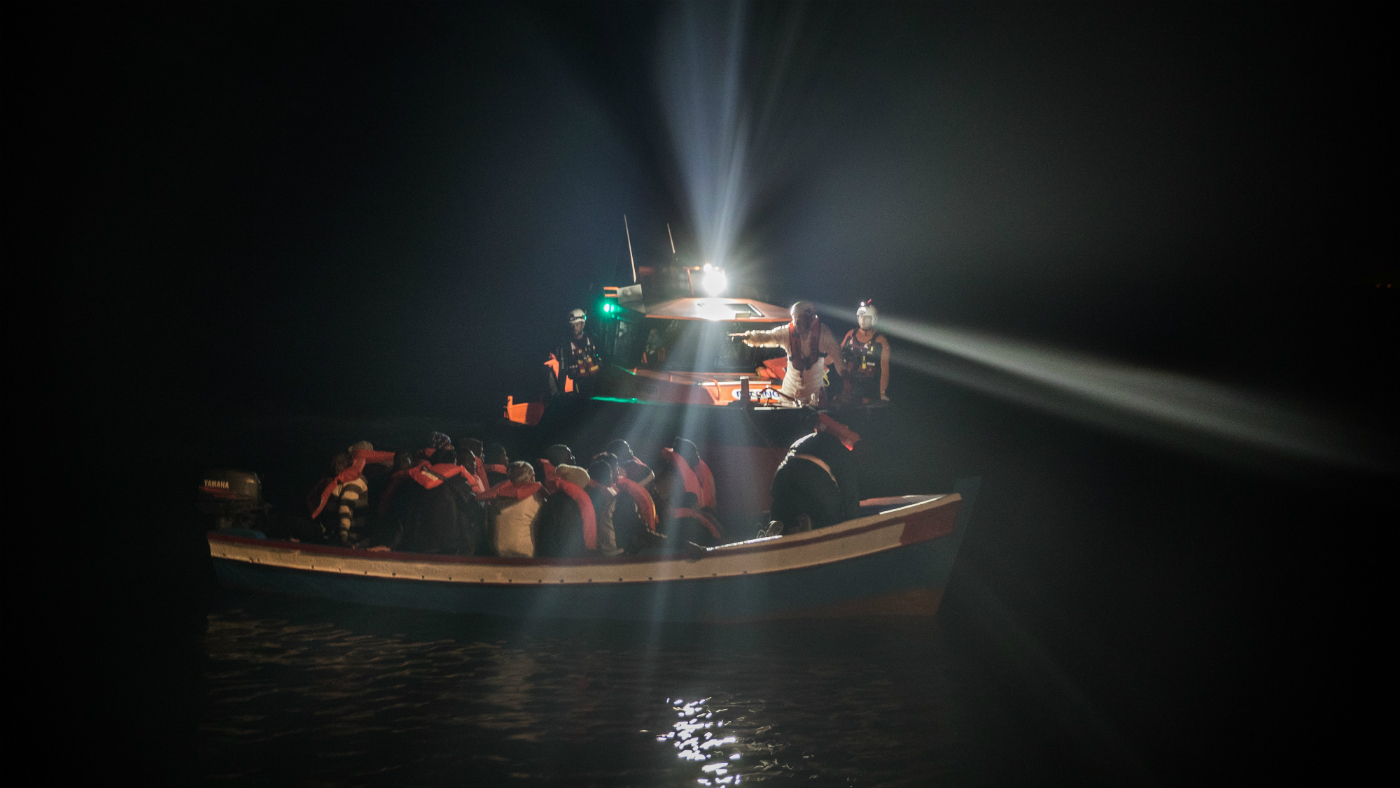Is another big refugee crisis looming?
German interior minister says EU should brace for biggest influx so far this decade

A free daily email with the biggest news stories of the day – and the best features from TheWeek.com
You are now subscribed
Your newsletter sign-up was successful
Europe is facing a refugee crisis even greater than that of four years ago, Germany has warned.
German Interior Minister Horst Seehofer says that despite the events of 2015, when more than a million migrants and refugees crossed into Europe illegally by land and sea, the EU remains unprepared for a fresh influx, The Times reports.
Speaking during an offical visit to Greece, he told German newspaper Bild: “We have to help our European partners even more on patrolling the EU’s external borders. We have left them alone for too long.
The Week
Escape your echo chamber. Get the facts behind the news, plus analysis from multiple perspectives.

Sign up for The Week's Free Newsletters
From our morning news briefing to a weekly Good News Newsletter, get the best of The Week delivered directly to your inbox.
From our morning news briefing to a weekly Good News Newsletter, get the best of The Week delivered directly to your inbox.
“If we don’t we will once again see a refugee wave like in 2015, maybe even greater than four years ago.”
–––––––––––––––––––––––––––––––For a round-up of the most important stories from around the world - and a concise, refreshing and balanced take on the week’s news agenda - try The Week magazine. Get your first six issues free–––––––––––––––––––––––––––––––
Seehofer is seeking support for an EU quota system for rescued asylum seekers and has committed Germany to taking in a quarter of those who arrive in member states via the sea route between North Africa and Italy. However, he has not agreed to accept any refugees entering the bloc via Spain or Greece, reports The Telegraph.
The politician said he would push for increased EU funds to be assigned to Turkey, while offering more technical support for Greece’s coast guard. A 2016 agreement that saw €6bn (£5.35bn) granted to Ankara was key in turning the tide on the surge of migration back then.
A free daily email with the biggest news stories of the day – and the best features from TheWeek.com
Last week, France’s President Emmanuel Macron accused Turkish leaders of exploiting the refugee crisis as “a means of pressure” over Turkish foreign policy in Syria and as a lever to extract more money.
In response, Turkey’s Foreign Minister Mevlut Cavusoglu called Macron a “crowing cockerel” and said the French leader had “exceeded his boundaries by defaming Turkey”.
Signalling that Germany was ready to give Ankara more money, Seehofer told German newspaper Die Welt: “Turkey is doing a great deal in welcoming refugees. It is also in our interests but it is clear that we cannot manage the future with the resources of the past.”
The German interior minister, a member of Bavaria’s conservative CSU party, was one of the chief critics of Chancellor Angela Merkel’s decision to allow 890,000 refugees into Germany during the 2015 crisis. But he claims to have the full backing of Merkel for his bid to prevent another migrant crisis from happening now.
The question of how Germany should tackle the issue has divided Germany’s ruling coalition, which comprises Merkel’s conservative CDU, its CSU sister party and the center-left SPD.
Ralph Brinkhaus, CDU/CSU leader in the German parliament, argues that Seehofer’s plan would increase smuggling over the borders.
“This is the interior minister’s initiative, it does not come from the CDU/CSU faction in the Bundestag,” Brinkhaus said. “We will have to take a very close look at his plans.”
-
 Democrats push for ICE accountability
Democrats push for ICE accountabilityFeature U.S. citizens shot and violently detained by immigration agents testify at Capitol Hill hearing
-
 The price of sporting glory
The price of sporting gloryFeature The Milan-Cortina Winter Olympics kicked off this week. Will Italy regret playing host?
-
 Fulton County: A dress rehearsal for election theft?
Fulton County: A dress rehearsal for election theft?Feature Director of National Intelligence Tulsi Gabbard is Trump's de facto ‘voter fraud’ czar
-
 Epstein files topple law CEO, roil UK government
Epstein files topple law CEO, roil UK governmentSpeed Read Peter Mandelson, Britain’s former ambassador to the US, is caught up in the scandal
-
 Iran and US prepare to meet after skirmishes
Iran and US prepare to meet after skirmishesSpeed Read The incident comes amid heightened tensions in the Middle East
-
 Israel retrieves final hostage’s body from Gaza
Israel retrieves final hostage’s body from GazaSpeed Read The 24-year-old police officer was killed during the initial Hamas attack
-
 China’s Xi targets top general in growing purge
China’s Xi targets top general in growing purgeSpeed Read Zhang Youxia is being investigated over ‘grave violations’ of the law
-
 Panama and Canada are negotiating over a crucial copper mine
Panama and Canada are negotiating over a crucial copper mineIn the Spotlight Panama is set to make a final decision on the mine this summer
-
 Why Greenland’s natural resources are nearly impossible to mine
Why Greenland’s natural resources are nearly impossible to mineThe Explainer The country’s natural landscape makes the task extremely difficult
-
 Iran cuts internet as protests escalate
Iran cuts internet as protests escalateSpeed Reada Government buildings across the country have been set on fire
-
 US nabs ‘shadow’ tanker claimed by Russia
US nabs ‘shadow’ tanker claimed by RussiaSpeed Read The ship was one of two vessels seized by the US military